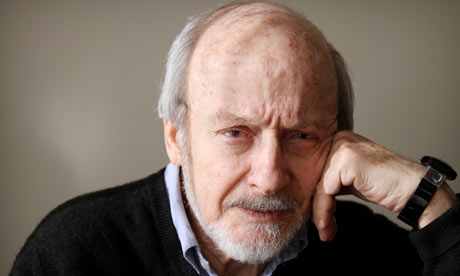We’ve still got some folks weighing
in on “Wakefield” a day or two later (I told you it was a long one,) so I
thought I’d share a few of the lines that really struck me as I reread the story.
These aren’t necessarily beautiful or flowery masterstrokes of style- I don’t
think that’s Doctorow’s M.O. (see last paragraph of this article)- but there’s something about
his writing that grabs you by the shoulders and makes you look at things from
an unexpected angle, something that leaves you convinced that you’ve seen the
person or thing exactly how he meant you to. Reminds me a little of Eugenides
in that regard:
“That’s what she did when we argued- she used the last name. I wasn’t Howard, I was Wakefield. It was one of her feminist adaptations of the locker room style that I detested.”
“She still moved like the dancer she had been in college, her feet pointed slightly outward, her head high, her walk more a glide than something taken step by step.”
“From the shadow of the garage, I beheld the back yard, with its Norwegian maples, the tilted white birches, the ancient apple tree whose branches touched the windows of the family room, and for the first time, it seemed, I understood the green glory of this acreage as something indifferent to human life and quite apart from the Victorian manse set upon it.”
“All that was wanting now was Diana’s mother, and by noon she was up from the city in her white Escalade- the widow Babs, who had opposed the marriage and was likely now to say so. Babs was what Diana, God help us, might be thirty years hence- high heeled, ceramicized, liposucted, devaricosed, her golden fall of hair as shiny and hard as peanut brittle.”
“I watched in the big mirror as, snip by snip, I travelled back in time. With each falling hank of hair, more and more of the disastrous lineaments of my previous self emerged, until, big naked ears and all, staring back at me was the missing link to Howard Wakefield.”



.bmp)
